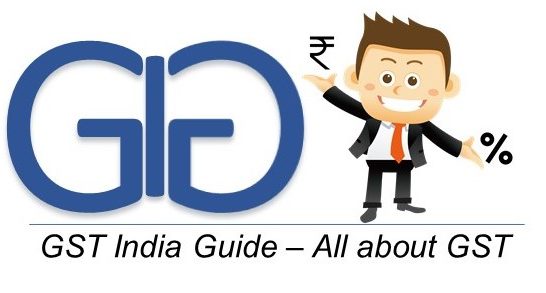The SPDA had argued that the industry is paying a higher effective tax rate of 8.9% which is impacting the financial viability of solar projects
After reviewing a petition filed by the Solar Power Developers Association (SPDA) that challenges the new tax formulation structure for solar projects, a bench of the Delhi High Court has asked GST Council to review the newly-introduced taxation formula.
In December 2018, the GST Council, in its 31st meeting, had given its recommendations on solar power generating projects. In the recommendation, the GST Council stated that in case of contracts of supply for solar power generating systems (SPGS), 70% of the gross value of the contract would be deemed as the value of supply of goods and attract 5% rate while the remaining 30% of the aggregate value of such EPC contract will be deemed as the value of supply of taxable service attracting standard GST rate (18%).
Following the announcement of the recommendations, in January 2019, the SPDA had noted in a letter to Finance Minister Arun Jaitley that the new recommendations from the council have made the effective tax rate to be 8.9% (70% X 5 % + 30 % X 18 %), which is considerably higher when compared to the rate of 1.5 to 2 percent in the pre-GST era.
Commenting on the development, the SPDA spokesperson said, “We are thankful to GST Council for bringing necessary clarity on the taxability of various types of contracts for the supply of goods and services in solar power generating system. However, with the 70:30 ratio of supply of goods and services, the industry is ending-up paying a higher effective tax rate of 8.9% which is again impacting the financial viability of the solar projects. We welcome the decision of Hon’ble High Court of Delhi and as directed, we will bring relevant facts and figures to the table before CBIC and hope to reach an amicable and fair settlement on the issue”.
Earlier, Mercom reported how the divergent state commission rulings regarding GST were creating confusion and uncertainty in the solar market. Though it was clear in law that solar power generating systems will attract 5% GST, what created the confusion was that solar power generating systems are procured in various contracting structures.
For example, the Authority of Advance Ruling (AAR) for the state of Uttarakhand had ruled that the supply of solar inverter, controller, battery, and solar panels fall under the definition of ‘solar power generating system’ and therefore the applicable rate of GST on supply of these items will be five percent and treated as ‘composite supply’. On the other hand, before that, the Maharashtra State Authority of Advanced Ruling (MSAAR) in a petition filed by Giriraj Renewables ruled that the supply of turnkey engineering, procurement, and construction contract for the construction of a solar project wherein both goods and services are supplied falls within the definition of ‘composite supply’. Therefore, composite supply falls within the definition of works contract. In a similar petition, the AAR in Karnataka concluded that a turnkey EPC contract for the construction of solar power project in which both goods and services are supplied could not be interpreted as a composite (a mix of components which make up a solar project) supply contract. Therefore, the supply of each component in a ‘Solar Power Generating System’ cannot have a flat tax rate of 5% GST.
Underlining these confusing and contradictory orders passed by the states in the past, the petition states, “The varied rulings in different states created a complete state of confusion and uncertainty on the appropriate tax position for an SPGS (solar power generating systems), thereby: (a) defeating the intent of granting a concessional GST rate of 5% to SPGS; (b) contradicting the well-established policy of promoting solar energy production and usage in the country; (c) frustrating the well espoused principle of ‘One Nation, One Tax’ under the GST, and (d) leaving taxpayers in the sector, including the petitioners, entirely uncertain on their project costs. The GST laws do not have any mechanism through any appropriate appellate forum or otherwise to address a divergent ruling qua the taxability of the same transaction between AAR/AAAR in different states. This is a fundamental lacuna in the framework of the GST law.”
Further, the petitioners have argued that the present presumptive order of valuation is not based on true commercial nature of contract and value of supplies and is also entirely at odds with the Central Government’s intent of promoting and incentivizing renewable energy.
The petitioners have also pointed out that the present structure is expected to create a surge in capital costs for solar power producers, leading to increased power tariffs for consumers which would imply the inability to meet the National Solar Mission commitment by 2022.
After going through the arguments made by the petitioners against the taxation structure, the Delhi court has now directed the GST Council to relook at the tax structure in consultation with the Central Board of Indirect Taxes and Customs and the MNRE. The bench has given the government a deadline of two months to revert. The next hearing has been scheduled on August 6, 2019. The petitioners: SPDA, Avaada, and ACME Solar will also be called for a consultative meeting within the next four weeks, the court order states.
Last year, Mercom interacted with numerous industry stakeholders to find out how the haphazard implementation of GST has affected solar projects.
“It is unfortunate that after almost two years since GST was introduced the solar industry is still searching for clarity about the tax rate. The confusion in implementing GST, and reimbursement delays have contributed significantly to the slowdown in installations over the past two years,” said Raj Prabhu, CEO of Mercom Capital Group.
Source : https://mercomindia.com/delhi-court-gst-council-review-tax-solar/

